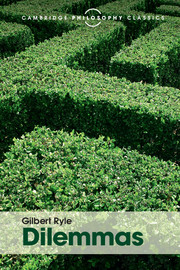Summary
There are different sorts of conflicts between theories. One familiar kind of conflict is that in which two or more theorists offer rival solutions of the same problem. In the simplest cases, their solutions are rivals in the sense that if one of them is true, the others are false. More often, naturally, the issue is a fairly confused one, in which each of the solutions proffered is in part right, in part wrong and in part just incomplete or nebulous. There is nothing to regret in the existence of disagreements of this sort. Even if, in the end, all the rival theories but one are totally demolished, still their contest has helped to test and develop the power of the arguments in favour of the survivor.
However, this is not the kind of theoretical conflict with which we shall be concerned. I hope to interest you in quite a different pattern of disputes, and, therewith, in quite a different sort of settlement of these disputes.
There often arise quarrels between theories, or, more generally, between lines of thought, which are not rival solutions of the same problem, but rather solutions or would-be solutions of different problems, and which, none the less, seem to be irreconcilable with one another. A thinker who adopts one of them seems to be logically committed to rejecting the other, despite the fact that the inquiries from which the theories issued had, from the beginning, widely divergent goals. In disputes of this kind, we often find one and the same thinker—very likely oneself—strongly inclined to champion both sides and yet, at the very same time, strongly inclined entirely to repudiate one of them just because he is strongly inclined to support the other. He is both well satisfied with the logical credentials of each of the two points of view, and sure that one of them must be totally wrong if the other is even largely right. The internal administration of each seems to be impeccable but their diplomatic relations with one another seem to be internecine.
This whole set of lectures is intended to be an examination of a variety of concrete examples of dilemmas of this second kind. But I shall adduce, here and now, three familiar examples in order to illustrate what I have so far described only in general terms.
- Type
- Chapter
- Information
- DilemmasThe Tarner Lectures 1953, pp. 1 - 12Publisher: Cambridge University PressPrint publication year: 2015
- 1
- Cited by



